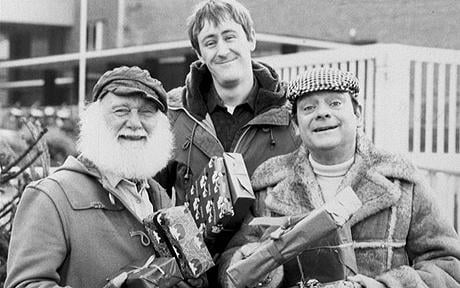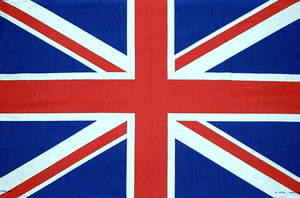London’s Secret Language: Talk Cockney
There are many things about England I will never understand. The TV show QI is one of them. I’ve tried so hard to appreciate it. I follow Stephen Fry on Twitter. I’ve watched episodes with friends who were literally falling over laughing while I just sat there, confused, with the vague notion that I should be finding it funny. But I did not. My sense of humor, raised on American sitcoms and their over-the-top comedy, just isn’t calibrated to that level of dryness. Another thing I just don’t understand, largely for the same reason, is Cockney rhyming slang, a hybrid colloquial dialect/word game from the East End of London dating back to the 19th century. So I thought it would be appropriate for me to kill two birds with one stone and learn to appreciate both rhyming slang and QI with this YouTube clip: https://www.youtube.com/watch?v=9ak5vYS0tvg
What? WHAT? Seriously, watching QI for me is like looking in the window at the party of the century, and everyone you know is there, and you’re locked outside getting snowed on. But as for Cockney rhyming slang, if I dissect it enough I can get a faint inkling of what’s going on. What you do is replace a commonplace word with a phrase that rhymes with it. For example, you would often replace the word “wife” with the phrase, “trouble and strife.” Then you generally drop the rhyming word from the whole setup, leaving you with just “trouble,” and that’s the point at which I get lost.

Sitcom Only Fools and Horses celebrated Cockney England
Other common terms include “mincers” (mince pies) for eyes and “apples and pears” for stairs. This, I think, is the main aspect of rhyming slang’s lack of accessibility to outsiders, as much of its construction is based on inside jokes, idioms, and references specific to the East End of London; outside of British pubs, you won’t find many mince pies in America, and our most commonly used fruit cliché is “apples and oranges.” And, as everyone knows, there is no rhyme for “orange.”
Like any language, Cockney rhyming slang is constantly evolving according to its youngest generation of users. Oftentimes celebrities are absorbed into the vernacular to become classic terms in their own right; the term “Ruby Murray” (meaning curry,) after an Irish singer popular in the ‘50s, has become so widespread that nowadays many Indian restaurants in London are named “The Ruby.” “Britney” (Britney Spears) is a common term for beer. Some rhyming slang terms have even seeped into American English without our realizing it, such as “to blow a raspberry,” (raspberry tart rhymes with fart,) and the old-timey challenge, “Put up your dukes!” (Duke of York rhymes with fork, which is Cockney slang for “fist.”) It’s even making its way into our pop culture, showing up in movies like Austin Powers in Goldmember, Ocean’s Eleven, and Snatch.
According to my housemate, who used to live in London, those well-versed in Cockney rhyming slang can fire it off at lightning speed without having to stop and calculate what rhymes with what, leaving the casual listener bewildered and in awe. But for the lay person, simply being able to recognize when it’s happening can be rewarding enough. However, if you’re not satisfied with that, it’s no Barney at all to read up on it yourself, and then if you still don’t have a Scoobyabout Chitty Chitty, Adam and Eve me, you’re not Jack Jones.
Have you experienced Cockney rhyming slang and what can you say?

